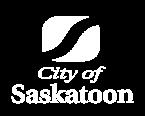Mental Health & Education Workshops
EXECUTIVE SKILLS
Assessment, Interventions and Coaching for Academic and Social Success
- Presented by Peg Dawson, Ed.D., NCSP
Executive skills—often referred to as “the hidden curriculum”—are critical cognitive abilities that underpin academic success. These include skills like task initiation, sustained attention, working memory, planning, organization, and goal-directed persistence. While these skills are essential for students to thrive in school, they are rarely explicitly addressed in standard curriculum frameworks.
Research shows that executive skills continue to develop well into early adulthood, and their growth can be influenced by factors such as experience, environment, and direct instruction. It is essential for educators to recognize the role these skills play in learning and to adopt strategies that promote their development in students.
This interactive 2-day workshop offers educators, school psychologists, special education teachers, and other professionals working with children and adolescents, a comprehensive understanding of executive skills and provides practical, evidence-based strategies to support their development. Participants will learn how to embed executive skills into daily routines, create a supportive environment, and design targeted interventions for children, adolescents and young adults who struggle with executive function challenges.
DAY 1
UNDERSTANDING AND ASSESSING EXECUTIVE SKILLS
Morning Session: Foundations of Executive Skills
• Overview of Executive Skills
• Developmental Progression
• Executive Skills and Brain Function
• Self-Assessment
Key Activities:
• Group discussions on the developmental trajectory of executive skills.
• Case studies to explore how deficits in executive function manifest differently.
Afternoon Session: Assessment and Environmental Modifications
• Assessing Executive Skills: Learn how to identify executive skill deficits through formal assessments, behavior rating scales, and teacher/parent/student interviews.
• Modifying the Environment: Discover strategies for adapting the home and classroom environment to support students with executive dysfunction. This includes environmental changes, task modifications, and adjusting adult interactions to promote success.
Key Activities:
• Brainstorming session to design classroom and home-based environmental modifications that support children, adolescents and young adults with weak executive skills.
DAY 2
INTERVENTIONS AND COACHING FOR EXECUTIVE SKILL DEVELOPMENT
Morning Session: Embedding Executive Skills in Daily Routines
• Teaching Through Routine: Learn how to integrate executive skill development into daily activities, such as homework planning, organization, and emotional regulation.
• Classroom Routines: Discover how to design daily classroom routines that foster executive skills, including teaching students how to plan, prioritize, and manage tasks effectively.
Key Activities:
• Group activity to design a home or classroom routine that incorporates one or more executive skills.
Afternoon Session: Designing Student-Centered Interventions
• Tailored Interventions: Learn how to create individualized interventions based on student needs, with a focus on addressing specific executive skill challenges in different contexts.
• Incentives and Motivation: Explore how to use incentives and reward systems to encourage the development and practice of executive skills.
Key Activities:
• Using case studies, participants will practice designing studentcentered interventions.
• Discussion of incentives and their role in promoting executive skills practice.
OPPOSITIONAL DEFIANT DISORDER Promoting Positive Behaviour to Empower Children and Adolescents
- Presented by Eboni
Webb, Psy.D., HSP
Oppositional Defiant Disorder (ODD) presents a complex and challenging set of behaviors that can significantly disrupt the lives of children and adolescents, as well as their families, teachers, and peers. Characterized by frequent defiance, irritability, argumentative behavior, temper tantrums, and a refusal to comply with authority, ODD often leads to significant difficulties in school, at home, and in social relationships. These behaviors can become more intense over time, creating a cycle that is difficult to break without the right interventions.
This two-day workshop is designed to provide a comprehensive, in-depth understanding of ODD, with a focus on its causes, manifestations, and evidence-based interventions. Whether you are a clinician, educator, counselor, or parent, this workshop will equip you with the knowledge and skills needed to manage and transform challenging behaviors in children and adolescents. Attendees will explore the complex psychological, environmental, and cultural factors that contribute to ODD and how these factors interact to create persistent defiance and resistance.
Through a mix of theoretical frameworks, real-life case studies, group discussions, and hands-on activities, participants will deepen their understanding of how ODD manifests in various environments and how to intervene effectively to promote positive behavioral change. By Day 2, participants will not only understand the underlying causes of ODD but also walk away with practical tools and therapeutic strategies that can be immediately applied in home, school, and community settings. This workshop will quip you with frameworks to manage ODD effectively and help children and youth develop the skills they need to thrive emotionally and socially.
DAY 1
UNDERSTANDING ODD
• Exploring the Causes of ODD: Psychological, environmental, and biological factors
• Recognizing the Signs and Symptoms: How ODD presents in children and adolescents
• The Impact of ODD: On academic performance, relationships, and overall functioning
• Cultural and Societal Influences: How family dynamics, school environments, and social pressures can fuel defiant behavior
• ODD and Co-Occurring Conditions: Addressing comorbidities such as ADHD, anxiety, and depression
PEG DAWSON, ED.D., NCSP, In over 40 years of clinical practice, Dr. Peg Dawson has worked with thousands of children who struggle at home and in school. At the center of their struggles are often weak executive skills. Along with her colleague, Dr. Richard Guare, she has written numerous books on this topic for educators, mental health professionals, and parents, among them Smart but Scattered, Smart but Scattered Teens, Executive Skills in Children and Adolescents, and Coaching Students with Executive Skills Deficits. Peg is also a past president of the National Association of School Psychologists, and the International School Psychology Association, and is a recipient of NASP’s Lifetime Achievement Award.
DAY 2
PRACTICAL INTERVENTIONS AND THERAPEUTIC APPROACHES
• Creating a Collaborative Approach: Working with families, teachers, and mental health professionals
• Effective Behavioral Interventions: Implementing strategies that reduce oppositional behaviors and encourage compliance
• Therapeutic Techniques: Cognitive-behavioral therapy (CBT), parent-child interaction therapy (PCIT), and other evidencebased methods
• Fostering Emotional Regulation: Helping children and teens develop self-control and coping strategies
EBONI WEBB, PSY.D., HSP, earned her Doctorate in Clinical Psychology from the Minnesota School of Professional Psychology (MSPP). She began her clinical work as assistant clinical director and program director at Mental Health Systems, PC (MHS), one of the largest providers of Dialectical Behavior Therapy (DBT) in the United States. At MHS, Dr. Webb developed two specialized DBT treatment programs for clients with developmental disabilities and borderline-intellectual functioning. She is comprehensively certified in DBT (PESI/Evergreen Institute and Michael Maslar of Northwestern University), MBSR, and is an advanced certified practitioner in Sensorimotor Psychotherapy.
by: Cynthia Wesley-Esquimaux, Ph.D. • Denise Findlay, M,ED., CPCC, ACC
Presented
Varleisha D. Lyons, Ph.D, OTD, OTR/L • Suzanne Methot, BA., B.Ed. • Shanelle Brillon Bath
-
•
-
RECOMMENDED ACCOMMODATION
Cambridge Suites Hotel - Halifax 1583 Brunswick Street Phone: 902.420.0555
The Westin Nova Scotian 1181 Hollis Street Phone: 902.421.1000
Please contact the hotels for the best available rates. *please note, room reservations are subject to availability.
DISCOUNT RATES
Groups registering by email, phone, fax or mail, must submit all registration forms at once. Please note, a $10 manual registration fee will apply for groups not registering online. Full time students (3+ classes per semester) must provide proof of enrolment. Please contact: registration@jackhirose.com for more info.
REGISTRATION FEE INCLUDES
Reference notes, certificate of completion, coffee, muffins and refreshment breaks. Lunches are not included.
CONTINUING EDUCATION CREDITS
Canadian Psychological Association (recognized by the Alberta College of Social Workers), Canadian Counselling & Psychotherapy Association, Canadian Addiction Counsellors Certification Federation, Canadian Vocational Rehabilitation Association, Canadian Professional Counselling Association, Employee Assistance Certification Commission (EAPA), Indigenous Certification Board of Canada (ICBOC).
TERMS & CONDITIONS
Our liability is limited to refunds for conference fees only. Jack Hirose & Associates Inc. reserves the right to cancel a event; please make hotel & travel arrangements with this in mind. In the event of a cancelled conference, we will issue a full refund for conference fees only Jack Hirose & Associates Inc. is not responsible for any statements, acts, materials, or omissions by our presenters or participants. The use of audio and video taping devices, beepers, and cell phones by conference participants is not permitted at any session. Children and unregistered guests are not permitted in the meeting rooms. Seats cannot be shared between individuals.
CANCELLATION POLICY: IMPORTANT DISCLAIMER: All cancellations for any workshop, intensive, or conference must be submitted by email at registration@jackhirose. com. Non-attendance will not be grounds for any or partial refund or credit under any circumstances. Exceptions to this will not be granted. Credits do not expire and can be used towards any upcoming in person event. No refunds or credits under any circumstances for cancellation requests submitted less than 7 days (1 week) prior to the event. Exceptions to this will not be granted. We reserve the right to cancel an event due to unforeseen circumstances such as under-enrolment, Act of God including weather, pandemic, etc. Should Jack Hirose and Associates decide to cancel or re-schedule the workshop for any reason, full fees will be refunded and no administrative fees will be charged. Liability is limited to a refund of workshop fees only, please make travel arrangements with this in mind.
CERTIFICATES: PDF downloads of the certificate will be available after the event has ended: Please go to: http://registration.jackhirose.com/certificates/.
RECEIPTS: Sent by email once you’re registration has been processed. Please be aware spam filters can block email receipts. Additional copies can downloaded from certificates.jackhirose.com
Jack Hirose and Associates Inc reserves the right to change the speaker lineup for any reason including, but not limited to: sudden illness, family emergencies, travel delays, or Acts of God including weather, pandemic, etc. If these changes are made prior to an event, registrants will be notified via confirmation email, reminder email, and alerts on the webpage. If these changes are made last minute, during the event, an announcement will be made.
PLEASE REVIEW OUR PRIVACY POLICY: WWW.JACKHIROSE.COM
A PROUD CANADIAN COMPANY
GROUP RATES
Group rates that include mix and match in-person with livestreaming enrollees
$100 off per person for groups of 15 or more
$75 off per person for groups of 8-15
$50 off per person for groups of 3 -7
Live stream enrollees can view course within 1 month after the event date.
WHO SHOULD ATTEND
Education and Clinical Professionals: All education and mental health or healthcare professionals who work with children or youth including, but not limited to K–12 Classroom Teachers, School Counsellors, Learning Assistance/Resource Teachers, School Administrators, School Paraprofessionals including Special Education Assistants, Classroom Assistants and Childcare Workers • All other professionals who support behavioural challenges and complex learning needs including but not limited to: Nurses, Social Workers, Psychologists, Clinical Counsellors, Family Therapists, Occupational Therapists, Speech Language Pathologists, Addiction Counsellors, Youth Workers, Mental Health Workers, Probation Officers and Community Police Officers.
LIVE STREAM FROM HOME
Workshops will be live streaming from Halifax, NS to online participants on April 28–30, 2025. Please allow 3–5 business days after the conference has ended for recorded footage to become available.
Live stream registration: www.webinars.jackhirose.com
SPONSORED
Dalhousie
8:30am - 11:45am
Fostering SocialEmotional Learning Skills for Academic Success Using BrainBehaviour Relationships
12:45pm - 4:00pm Reading and Writing Disorders
Brain-Based Interventions for Students
BY
8:30am - 11:45am Executive Skill
Dysfunction
Understanding and Assessing Challenges in Children, Adolescents and Young Adults 12:45pm - 4:00pm Improving Executive Skills
Intervention and Coaching Strategies
8:30am - 11:45am
Oppositional, Defiant & Explosive Behaviours
Transforming Challenges for Long Term Success 12:45pm - 4:00pm Anxiety Solutions Practical Strategies for Resilience, Confidence and Coping Skills in Children and Youth
PRESENTED BY Caroline Buzanko Ph.D., R. Psych
AGENDA Monday, June 2 Tuesday, June 3 Wednesday, June 4
1. Fostering Social-Emotional Learning Skills for Academic Success Using BrainBehaviour Relationships
- Steven G. Feifer, D.Ed., ABSNP
2. Reading and Writing Disorders: BrainBased Interventions for Students
- Steven G. Feifer, D.Ed., ABSNP
3. Executive Skill Dysfunction: Understanding and Assessing Challenges in Children, Adolescents and Young Adults
- Peg Dawson, Ed.D., NCSP
4. Improving Executive Skills: Intervention and Coaching Strategies
- Peg Dawson, Ed.D., NCSP
5. Oppositional, Defiant and Explosive Behaviours: Transforming Challenges for Long Term Success
- Caroline Buzanko, Ph.D., R. Psych
6. Anxiety Solutions: Practical Strategies for Resilience, Confidence and Coping Skills in Children and Youth
- Caroline Buzanko, Ph.D., R. Psych
WORKSHOP #1 - 8:30AM - 11:45AM
Fostering Social-Emotional Learning Skills for Academic Success Using Brain-Behaviour Relationships
- Presented by Steven G. Feifer, D.Ed., ABSNP WORKSHOP #2 - 12:45PM - 4:00PM
This workshop will examine the impact of mental health conditions on students’ academic performance and social development, offering practical strategies schools can use to promote emotional wellness. Through the lens of brainbehavioural relationships, this workshop will explore how schools can create environments that support not only academic achievement but also emotional regulation, social skills, and overall mental well-being. Factors such as poverty, trauma, childhood abuse, parental neglect, and the lasting effects of the pandemic can disrupt key brain processes related to learning and emotional behavior, resulting in challenges for students both academically and socially.
The focus of this workshop is on early intervention, effective assessment, and evidence-based classroom strategies. We will equip educators, school counselors, and mental health professionals with the tools they need to support emotional wellness in students, helping them overcome emotional challenges and thrive academically. Participants will learn how to assess emotional wellness, implement social-emotional learning initiatives, and create nurturing, resilient school environments that foster positive outcomes for all students.
Learning Objectives
• Understand the Prevalence of Emotional Disabilities in Canadian Students: Discuss the increasing rates of emotional dysregulation in children and adolescents, and explore the critical link between emotional wellness and academic success.
• Explore Brain Mechanisms Affected by Stress and Anxiety: Learn about the key brain regions impacted by emotional stress, anxiety, and depression, and how these conditions affect students’ cognitive and social development.
• Introduce Effective Assessment Tools: Discover assessment options for evaluating emotional dysregulation in students, with a focus on the FACT Scale, a tool designed to measure the impact of stress and trauma on academic and social-emotional functioning.
Reading and Writing Disorders: Brain-Based Interventions for Students
- Presented by Steven G. Feifer, D.Ed., ABSNP
This 3-hour afternoon workshop will explore reading and written language disorders through a brain-based educational lens, offering participants targeted strategies for supporting students with learning challenges. The workshop will be divided into two key segments: reading disorders in the first half and written language disorders in the second, each designed to equip educators and clinicians with the practical tools necessary for effective intervention.
Understanding and Addressing Reading Disorders
The first part of the workshop will focus on differentiating dyslexia from other reading disorders, with a special emphasis on classifying developmental reading disorders into four distinct subtypes. Participants will learn how to identify each subtype and match it with evidence-based interventions to target the specific cognitive challenges associated with it. We will delve into essential cognitive constructs involved in the reading process, including:
• Phonemic awareness
• Phonological processing
• Orthographic processing
• Working memory
• Executive functioning
Additionally, the Feifer Assessment of Reading (FAR) will be introduced as a diagnostic tool to assess reading abilities, helping to inform intervention planning and guide targeted support for students. Participants will gain hands-on strategies to assess reading difficulties and design appropriate interventions based on individual student needs.
Exploring Writing Disorders and Intervention Strategies
The second half of the workshop will examine writing disorders, with a focus on how “frontal lobe” processes—such as attention, working memory, and executive functioning—influence each subtype of writing difficulty. We will explore three distinct subtypes of writing disorders and discuss the neurological basis for each. Participants will also review five essential steps for effective written language instruction, providing practical strategies for supporting students with writing challenges, including dysgraphia.
WORKSHOP #3 - 8:30AM - 11:45AM
Mental Health & Education Workshops
Christine Dargon, Ph.D.
Kathy Morris, M.Ed.
PLAY THERAPY IN ACTION
Transforming Social, Emotional, and Academic Challenges in Children & Adolescents
- Presented by Christine Dargon, Ph.D.
Children often struggle to fully understand and communicate their experiences because their cognitive and emotional development is still in progress. They may lack the vocabulary to express their feelings or the cognitive tools to make sense of their world. This is where Play Therapy becomes an invaluable resource. Play Therapy provides children with a natural, engaging way to communicate, process their emotions, and explore their inner experiences.
This workshop will teach participants how to harness Play Therapy as a powerful tool for both communication and assessment. You will learn how to interpret children’s play—what they choose to play with, what they create, and how they engage with you as a professional. Through their play, children reveal critical insights into their struggles, allowing us to understand the underlying causes of their behaviors and emotions.
AGENDA
Introduction to Play Therapy – How to Use It
• Overview
• Techniques and Approaches
- Non-Directive vs. Directive
- Soft vs. Hard Mediums
- Assessment and Benefits
Hands-On Learning: Play Therapy Techniques
• Non-Directive Techniques:
• Directive Techniques:
• Interactive Practice
Play Therapy for Specific Disorders:
• Anger & OCD, Anxiety, ADHD, Depression & Self-Esteem, Trauma & PTSD, Abuse, and Fears
• Play Therapy with Families, Groups, and Couples
• Areas of Caution
- Mediums: Choosing appropriate materials.
- Sexualized/Acting Out Behaviors: Addressing inappropriate behaviors.
- Abuse-Related Play: Understanding repetitive themes in abused children.
By attending this seminar, you will gain a deeper understanding of how to decode children’s play and use it to assess their emotional and psychological needs. You’ll also leave with a practical toolbox of Play Therapy techniques that can be immediately applied in your work with children and clients of all ages. This toolbox will include interventions for addressing a variety of presenting issues, such as anger, ADHD, depression, and anxiety. Techniques will include Sand Tray therapy, coloring, the use of puppets, dance/ movement, “I Spy,” and many other creative methods.
Much of the seminar will involve active, hands-on learning, where you’ll have the opportunity to practice and experience these techniques firsthand. Prepare for an engaging, dynamic experience that will help you see the world through a child’s eyes, while equipping you with the tools to make a meaningful difference in their lives.
LEARNING OBJECTIVES
1. Understand the Purpose and Goals of Play Therapy
• Grasp how Play Therapy helps children express emotions, process trauma, and develop coping skills.
2. Learn and Implement Play Therapy Techniques
• Acquire practical, easy-to-use techniques tailored to specific issues such as anxiety, anger, ADHD, and trauma.
3. Use Play Therapy as a Diagnostic Tool
• Learn how to interpret children’s play to assess their emotional and psychological state.
4. Match Techniques to Presenting Problems
• Understand which Play Therapy techniques are most effective for different children and issues (e.g., self-esteem, depression, fears).
5. Address Areas of Caution
• Identify important considerations when selecting materials, including potential risks with certain types of play and behaviors.
6. Apply Play Therapy in Various Settings
• Learn how to use Play Therapy techniques effectively in individual, group, and family therapy contexts.
STRENGTHENING SELF-REGULATION AND EXECUTIVE FUNCTIONING IN CHILDREN AND ADOLESCENTS
- Presented by Kathy Morris, M.Ed.
Do you work with children and adolescents who struggle with attention, organization, transitions, and planning?
Are you looking for effective strategies to help students who often act out, get overwhelmed, or struggle to understand the consequences of their actions? These challenges often stem from deficits in Executive Functioning (EF)—a critical set of cognitive skills needed for self-regulation and goal-directed behaviour.
The good news is that Executive Functioning can be taught and strengthened!
In this hands-on workshop, Kathy Morris, M.Ed., B.S., an international speaker, speech therapist, and educator with over 42 years of experience, will guide you through evidence-based strategies to improve EF skills in children and adolescents. Kathy will introduce metacognitive and self-regulation techniques that use visual aids and interactive activities to improve key skills such as:
AGENDA
Understanding Executive Functioning (EF) Deficits
• What is Executive Functioning?
• Assessing EF Deficits
• Interactive Breakout Activity: Mapping EF Deficits Strategies for Strengthening Key Executive Functioning Skills
• Inhibitory Control
• Adaptability & Mental Flexibility
• Executive Attention
• Interactive Activity: Hands-On Strategy Practice Emotional Control & Social Skills Development
• Emotional Control
• Social Skills Development
• Interactive Activity: Social Skills Role-Playing Integrating Executive Functioning Strategies into Daily Practice
• Creating an EF-Friendly Environment
• Individualized Plans and Supports
• Tracking Progress
• Interactive Activity: Designing EF Plans
1. Inhibitory Control
Helping students pause before acting to control impulses.
2. Adaptability
Building resilience and the ability to cope with changes.
3. Mental Flexibility
Encouraging problem-solving and task switching.
4. Executive Attention
Improving focus, prioritization, and task completion.
5. Emotional Control
Managing frustration and anxiety during emotionally charged situations.
6. Social Skills
Enhancing communication and peer interactions.
LEARNING OBJECTIVES
1. Understand EF Deficits: Identify key EF areas impacted in children, including attention, emotional regulation, and social skills.
2. Apply Effective Strategies: Implement evidence-based techniques to improve inhibitory control, adaptability, and mental flexibility.
3. Use Visual & Hands-On Tools: Employ visual supports and activities to enhance planning, organization, and task transitions.
4. Strengthen Emotional Regulation: Teach children to manage emotions and reduce outbursts in challenging situations.
5. Enhance Social Skills: Implement strategies to help children improve social interactions and peer relationships.
6. Improve Executive Attention: Develop strategies to boost focus, concentration, and task management.
7. Create Practical EF Plans: Design individualized intervention plans tailored to children’s needs across various
CHRISTINE DARGON, PH.D., is a retired psychologist. She continues her work teaching as college faculty for almost 30 years at two universities. She consults and now owns a health and wellness center, with two locations in Northern AZ, focusing on integrative techniques to help individuals of all ages such a yoga, meditation, mindfulness, breath work and much more. She continues to also train professionals in play therapy and sand tray interventions.

KATHY MORRIS, M.ED., has been a speech therapist, teacher for self-contained programs (including students with autism, severe behavioural difficulties, and cerebral palsy), resource teacher and first grade teacher. She was also a diagnostician/supervisor for all grade levels. She was a LIFE Skills/autism/ behaviour/assistive technology consultant at a Texas education service center before leaving to start her own business in 1999. Her business, igivuWings, has reached families and educators throughout the world. Kathy has had over 42 years of experience working with children and adolescents with severe behavioural difficulties.
Langley 19500 Langley Bypass
RECOMMENDED ACCOMMODATION
Holiday Inn – Ottawa East 1199 Joseph Cyr Street Phone: 613.744.1060
Please contact the hotels for the best available rates. *please note, room reservations are subject to availability.
DISCOUNT RATES
Groups registering by email, phone, fax or mail, must submit all registration forms at once. Please note, a $10 manual registration fee will apply for groups not registering online. Full time students (3+ classes per semester) must provide proof of enrolment. Please contact: registration@jackhirose.com for more info.
REGISTRATION FEE INCLUDES
Reference notes, certificate of completion, coffee, muffins and refreshment breaks. Lunches are not included.
CONTINUING EDUCATION CREDITS
Canadian Psychological Association (recognized by the Alberta College of Social Workers), Canadian Counselling & Psychotherapy Association, Canadian Addiction Counsellors Certification Federation, Canadian Vocational Rehabilitation Association, Canadian Professional Counselling Association, Employee Assistance Certification Commission (EAPA), Indigenous Certification Board of Canada (ICBOC).
TERMS & CONDITIONS
Our liability is limited to refunds for conference fees only. Jack Hirose & Associates Inc. reserves the right to cancel a event; please make hotel & travel arrangements with this in mind. In the event of a cancelled conference, we will issue a full refund for conference fees only Jack Hirose & Associates Inc. is not responsible for any statements, acts, materials, or omissions by our presenters or participants. The use of audio and video taping devices, beepers, and cell phones by conference participants is not permitted at any session. Children and unregistered guests are not permitted in the meeting rooms. Seats cannot be shared between individuals.
CANCELLATION POLICY: IMPORTANT DISCLAIMER: All cancellations for any workshop, intensive, or conference must be submitted by email at registration@jackhirose. com. Non-attendance will not be grounds for any or partial refund or credit under any circumstances. Exceptions to this will not be granted. Credits do not expire and can be used towards any upcoming in person event. No refunds or credits under any circumstances for cancellation requests submitted less than 7 days (1 week) prior to the event. Exceptions to this will not be granted. We reserve the right to cancel an event due to unforeseen circumstances such as under-enrolment, Act of God including weather, pandemic, etc. Should Jack Hirose and Associates decide to cancel or re-schedule the workshop for any reason, full fees will be refunded and no administrative fees will be charged. Liability is limited to a refund of workshop fees only, please make travel arrangements with this in mind.
CERTIFICATES: PDF downloads of the certificate will be available after the event has ended: Please go to: http://registration.jackhirose.com/certificates/.
RECEIPTS: Sent by email once you’re registration has been processed. Please be aware spam filters can block email receipts. Additional copies can downloaded from certificates.jackhirose.com
Jack Hirose and Associates Inc reserves the right to change the speaker lineup for any reason including, but not limited to: sudden illness, family emergencies, travel delays, or Acts of God including weather, pandemic, etc. If these changes are made prior to an event, registrants will be notified via confirmation email, reminder email, and alerts on the webpage. If these changes are made last minute, during the event, an announcement will be made.
PLEASE REVIEW OUR PRIVACY POLICY: WWW.JACKHIROSE.COM
A PROUD CANADIAN COMPANY
GROUP RATES
Group rates that include mix and match in-person with livestreaming enrollees
$100 off per person for groups of 15 or more
$75 off per person for groups of 8-15
$50 off per person for groups of 3 -7
Live stream enrollees can view course within 1 month after the event date.
WHO SHOULD ATTEND
Education and Clinical Professionals: All education and mental health or healthcare professionals who work with children or youth including, but not limited to K–12 Classroom Teachers, School Counsellors, Learning Assistance/Resource Teachers, School Administrators, School Paraprofessionals including Special Education Assistants, Classroom Assistants and Childcare Workers • All other professionals who support behavioural challenges and complex learning needs including but not limited to: Nurses, Social Workers, Psychologists, Clinical Counsellors, Family Therapists, Occupational Therapists, Speech Language Pathologists, Addiction Counsellors, Youth Workers, Mental Health Workers, Probation Officers and Community Police Officers.
LIVE STREAM FROM HOME
Workshops will be live streaming from Ottawa, ON to online participants on May 28–30, 2025. Please allow 3–5 business days after the conference has ended for recorded footage to become available.
Live stream registration: www.webinars.jackhirose.com
- 11:45am Understanding Autism & Social Communication Disorder 12:45pm - 4:00pm Evidence-Based Strategies for Addressing Challenges in Autism Spectrum Disorder and Social Communication Disorder
8:30am - 11:45am
Fostering SocialEmotional Learning Skills for Academic Success Using BrainBehaviour Relationships 12:45pm - 4:00pm Reading and Writing Disorders
Brain-Based Interventions for Students
8:30am - 11:45am
Oppositional, Defiant & Explosive Behaviours Transforming Challenges for Long Term Success 12:45pm - 4:00pm Anxiety Solutions Practical Strategies for Resilience, Confidence and Coping Skills in Children and Youth
Complete & Return Payment to: Jack Hirose & Associates
1. Understanding Autism and Social Communication Disorder
- Cara Daily, Ph.D.
6. Evidence-Based Strategies for Addressing Challenges in Autism Spectrum Disorder and Social Communication Disorder
- Cara Daily, Ph.D.
3. Fostering Social-Emotional Learning Skills for Academic Success Using BrainBehaviour Relationships
- Steven G. Feifer, D.Ed., ABSNP
4. Reading and Writing Disorders: BrainBased Interventions for Students
- Steven G. Feifer, D.Ed., ABSNP
5. Oppositional, Defiant and Explosive Behaviours: Transforming Challenges for Long Term Success
- Caroline Buzanko, Ph.D., R. Psych
6. Anxiety Solutions: Practical Strategies for Resilience, Confidence and Coping Skills in Children and Youth
- Caroline Buzanko, Ph.D., R. Psych
Understanding Autism and Social Communication Disorder
- Presented by Cara Daily, Ph.D.
In Part 1 of this one-day workshop, participants will gain an in-depth understanding of Autism Spectrum Disorder (ASD) and Social Communication Disorder (SCD). Autism expert and author Cara Daily, PhD, BCBA will guide attendees through the diagnostic criteria, assessment tools, and the brain function related to both disorders, providing participants with a strong foundation for working with children and adolescents on the autism spectrum.
This session will focus on recognizing the unique behaviors and challenges individuals with ASD and SCD face. Participants will learn how to differentiate between autism and social communication disorder, as well as how to assess and diagnose these conditions using tools like the DSM-5® and ICD-11. Attendees will also explore the various comorbidities that may accompany these disorders, such as ADHD, learning disorders, and intellectual disabilities. Through hands-on activities, participants will experience firsthand what it’s like to live with ASD, examining the challenges their clients, students, or patients face. This workshop will also explore brain function in autism, allowing participants to grasp the neurological underpinnings that contribute to the social communication and behavioral difficulties seen in individuals with autism.
Learning Objectives
• Diagnostic criteria for Autism Spectrum Disorder (ASD) and Social Communication Disorder (SCD) using DSM-5® and ICD-11.
• Overview of assessment tools for evaluating communication, social behaviors, and restricted/repetitive behaviors.
• Understanding brain function in autism and social communication disorder.
• Recognizing and understanding comorbidities (e.g., ADHD, learning disabilities, intellectual disabilities).
• Identifying and categorizing challenging behaviors in individuals with autism and social communication disorder.
• Hands-on activities to experience what it’s like to live with ASD.
Evidence-Based Strategies for Addressing Challenges in Autism Spectrum Disorder and Social Communication Disorder
- Presented by Cara Daily, Ph.D.
Part 2 of this one-day workshop will focus on evidence-based interventions and practical strategies for managing challenging behaviors and enhancing social communication in children, adolescents, and young adults with Autism Spectrum Disorder (ASD) and Social Communication Disorder (SCD). Building on the foundational knowledge from Part 1, this session will focus on practical, hands-on tools to support behavior change, teach social communication skills, and create supportive environments in home, school, and community settings.
Dr. Cara Marker Daily will explore behavioral strategies like Applied Behavior Analysis (ABA), as well as Cognitive Behavioral Therapy (CBT) for promoting self-regulation and reducing anxiety. Participants will learn how to integrate social communication interventions such as PECS, turn-taking, and social skills training into their practices.
Additionally, participants will focus on modifying environmental factors (both home and classroom settings) to support the individual’s growth and behavior management. Emphasis will be placed on creating environments that promote social skills development and reduce triggers for challenging behaviors. Special attention will also be given to preparing children and young adults with ASD and SCD for independent living and adulthood, addressing topics like sex education, work readiness, and transitioning to the workforce.
Learning Objectives
• Behavioral Interventions: Implementing ABA and Cognitive Behavioral Therapy (CBT) strategies to reduce challenging behaviors and teach new, appropriate behaviors.
• Social Communication Interventions: Using PECS, turn-taking, and social skills classes to improve social interactions.
• Modifying the home, classroom, and community environments to promote behavior change and social skills.
WORKSHOP #3 - 8:30AM - 11:45AM
Fostering Social-Emotional Learning Skills for Academic Success Using Brain-Behaviour Relationships
- Presented by Steven G. Feifer, D.Ed., ABSNP
This workshop will examine the impact of mental health conditions on students’ academic performance and social development, offering practical strategies schools can use to promote emotional wellness. Through the lens of brainbehavioural relationships, this workshop will explore how schools can create environments that support not only academic achievement but also emotional regulation, social skills, and overall mental well-being. Factors such as poverty, trauma, childhood abuse, parental neglect, and the lasting effects of the pandemic can disrupt key brain processes related to learning and emotional behavior, resulting in challenges for students both academically and socially.
The focus of this workshop is on early intervention, effective assessment, and evidence-based classroom strategies. We will equip educators, school counselors, and mental health professionals with the tools they need to support emotional wellness in students, helping them overcome emotional challenges and thrive academically. Participants will learn how to assess emotional wellness, implement social-emotional learning initiatives, and create nurturing, resilient school environments that foster positive outcomes for all students.
WORKSHOP #4 - 12:45PM - 4:00PM
Reading and Writing Disorders: Brain-Based Interventions for Students
- Presented by Steven G. Feifer, D.Ed., ABSNP
This 3-hour afternoon workshop will explore reading and written language disorders through a brain-based educational lens, offering participants targeted strategies for supporting students with learning challenges. The workshop will be divided into two key segments: reading disorders in the first half and written language disorders in the second, each designed to equip educators and clinicians with the practical tools necessary for effective intervention.
Understanding and Addressing Reading Disorders
The first part of the workshop will focus on differentiating dyslexia from other reading disorders, with a special emphasis on classifying developmental reading disorders into four distinct subtypes. Participants will learn how to identify each subtype and match it with evidence-based interventions to target the specific cognitive challenges associated with it. We will delve into essential cognitive constructs involved in the reading process, including:
• Phonemic awareness
• Phonological processing
• Orthographic processing
• Working memory
• Executive functioning
WORKSHOP #5 - 8:30AM - 11:45AM
Oppositional, Defiant and Explosive Behaviours: Transforming Challenges for Long
Term Success
- Presented by Caroline Buzanko, Ph.D., R. Psych
While occasional defiance and emotional outbursts are a normal part of child development, they become concerning when they are frequent, intense, and interfere with a child’s ability to function at home, school, or in relationships. Behavioural disorders are the most common mental health issue in children, often co-occurring with other conditions, and can lead to long-term difficulties if left unaddressed.
Early intervention is key to promoting social, emotional, and behavioural well-being. This workshop is designed for anyone working with children and youth facing behavioural challenges, including clinicians, educators, and families. Participants will gain an understanding of these behaviours, their root causes, and the limitations of current approaches. The workshop will also provide practical, evidence-based strategies that can be immediately applied to support children and youth in various settings. Boost your confidence with creating positive, supportive environments that encourage desirable behaviours, enhance communication, and foster conflict resolution skills.
WORKSHOP #6 - 12:45PM - 4:00PM
Anxiety Solutions: Practical Strategies for Resilience, Confidence and Coping Skills in Children and Youth
- Presented by Caroline Buzanko, Ph.D., R. Psych
Anxiety has reached epidemic levels and is now the most common mental health challenge among children and teens. Unfortunately, many children go untreated until anxiety escalates into more severe issues, such as depression, social difficulties, and behavioural problems. Early intervention is crucial, but many parents, teachers, and professionals miss the signs of anxiety or unintentionally reinforce the anxiety cycle.
This workshop is designed for anyone working with children and teens struggling with anxiety. Through a transdiagnostic lens, participants will gain a deep understanding of how anxiety manifests and how to intervene effectively. Special attention will be given to the unique stressors faced by children and adolescents today, including pressures from technology and social media. Participants will also learn why common strategies may inadvertently worsen anxiety and, more importantly, how to help kids build resilience, confidence, and coping skills to overcome their fears.
Park Town Hotel 924 Spadina Crescent E Phone: 306.244.5564
Please contact the hotels for the best available rates. *please note, room reservations are subject to availability.
DISCOUNT RATES
Groups registering by email, phone, fax or mail, must submit all registration forms at once. Please note, a $10 manual registration fee will apply for groups not registering online. Full time students (3+ classes per semester) must provide proof of enrolment. Please contact: registration@jackhirose.com for more info.
REGISTRATION FEE INCLUDES
Reference notes, certificate of completion, coffee, muffins and refreshment breaks. Lunches are not included.
CONTINUING EDUCATION CREDITS
Canadian Psychological Association (recognized by the Alberta College of Social Workers), Canadian Counselling & Psychotherapy Association, Canadian Addiction Counsellors Certification Federation, Canadian Vocational Rehabilitation Association, Canadian Professional Counselling Association, Employee Assistance Certification Commission (EAPA), Indigenous Certification Board of Canada (ICBOC).
TERMS & CONDITIONS
Our liability is limited to refunds for conference fees only Jack Hirose & Associates Inc. reserves the right to cancel a event; please make hotel & travel arrangements with this in mind. In the event of a cancelled conference, we will issue a full refund for conference fees only Jack Hirose & Associates Inc. is not responsible for any statements, acts, materials, or omissions by our presenters or participants. The use of audio and video taping devices, beepers, and cell phones by conference participants is not permitted at any session. Children and unregistered guests are not permitted in the meeting rooms. Seats cannot be shared between individuals.
CANCELLATION POLICY: IMPORTANT DISCLAIMER: All cancellations for any workshop, intensive, or conference must be submitted by email at registration@jackhirose. com. Non-attendance will not be grounds for any or partial refund or credit under any circumstances. Exceptions to this will not be granted. Credits do not expire and can be used towards any upcoming in person event. No refunds or credits under any circumstances for cancellation requests submitted less than 7 days (1 week) prior to the event. Exceptions to this will not be granted. We reserve the right to cancel an event due to unforeseen circumstances such as under-enrolment, Act of God including weather, pandemic, etc. Should Jack Hirose and Associates decide to cancel or re-schedule the workshop for any reason, full fees will be refunded and no administrative fees will be charged. Liability is limited to a refund of workshop fees only, please make travel arrangements with this in mind.
CERTIFICATES: PDF downloads of the certificate will be available after the event has ended: Please go to: http://registration.jackhirose.com/certificates/.
RECEIPTS: Sent by email once you’re registration has been processed. Please be aware spam filters can block email receipts. Additional copies can downloaded from certificates.jackhirose.com
Jack Hirose and Associates Inc reserves the right to change the speaker lineup for any reason including, but not limited to: sudden illness, family emergencies, travel delays, or Acts of God including weather, pandemic, etc. If these changes are made prior to an event, registrants will be notified via confirmation email, reminder email, and alerts on the webpage. If these changes are made last minute, during the event, an announcement will be made. PLEASE REVIEW OUR PRIVACY POLICY: WWW.JACKHIROSE.COM
CANADIAN COMPANY
GROUP RATES
Group rates that include mix and match in-person with livestreaming enrollees
$100 off per person for groups of 15 or more
$75 off per person for groups of 8-15
$50 off per person for groups of 3 -7
Live stream enrollees can view course within 1 month after the event date.
WHO SHOULD ATTEND
Education and Clinical Professionals: All education and mental health or healthcare professionals who work with children or youth including, but not limited to K–12 Classroom Teachers, School Counsellors, Learning Assistance/Resource Teachers, School Administrators, School Paraprofessionals including Special Education Assistants, Classroom Assistants and Childcare Workers • All other professionals who support behavioural challenges and complex learning needs including but not limited to: Nurses, Social Workers, Psychologists, Clinical Counsellors, Family Therapists, Occupational Therapists, Speech Language Pathologists, Addiction Counsellors, Youth Workers, Mental Health Workers, Probation Officers and Community Police Officers.
LIVE STREAM FROM HOME
Workshops will be live streaming from Saskatoon, SK to online participants on May 12–14, 2025. Please allow 3–5 business days after the conference has ended for recorded footage to become available.
Live stream registration: www.webinars.jackhirose.com
SPONSORED BY
SASKATOON, SK
AGENDA Monday, May 12 Tuesday, May 13 Wednesday, May 14 Morning Session
8:30 am
1. Empowering Ourselves to Strengthen Our Future
- Cynthia Wesley-Esquimaux, Ph.D.
1. Empowering Ourselves to Strengthen Our Future
- Cynthia Wesley-Esquimaux, Ph.D.
2:15
2. Healing Through Spirit - Varleisha D. Lyons, Ph.D, OTD, OTR/L
2. Healing Through Spirit - Varleisha D. Lyons, Ph.D, OTD, OTR/L
3. Culturally Affirming and Strength-Based Narratives to Promote Healing
- Shanelle Brillon
Bath & Denise Findlay, M,ED.
3. Culturally Affirming and Strength-Based Narratives to Promote Healing
- Shanelle Brillon
Bath & Denise Findlay, M,ED.
4. De-Colonizing Services & Programs in Education & Mental Health
- Suzanne Methot, BA., B.Ed.
4. De-Colonizing Services & Programs in Education & Mental Health
- Suzanne Methot, BA., B.Ed.
Empowering Ourselves to Strengthen Our Future
- Presented by Cynthia
Wesley-Esquimaux, Ph.D.
This one-day workshop, facilitated by Cynthia Wesley-Esquimaux, will focus on the integration of traditional Indigenous healing and spiritual practices within mental health and educational frameworks. Designed for professionals working with children, adolescents, young adults, families, and communities, it will offer practical tools and culturally grounded insights that can be applied in clinical, educational, or community settings.
Participants will explore strategies for supporting cultural revitalization and community healing, with a particular emphasis on fostering sustainable, Indigenized practices. The workshop will provide opportunities for deep engagement with Indigenous healing traditions, encouraging reflection on both personal and community experiences. Through collaborative discussions and activities, attendees will develop actionable strategies for revitalizing and integrating traditional spiritual practices into contemporary mental health and educational approaches.
Whether you work with individuals, families, or larger community groups, this session will equip you with practical knowledge to enrich your work and support the healing and resilience of Indigenous communities.
Learning Objectives
• To unpack the foundational elements of traditional Indigenous healing and spiritual practices.
• To explore how decolonization and Indigenization can reshape relationships with community members, allies, and supporters.
• To promote dialogue around integrating traditional practices into current mental health and educational frameworks.
• To explore leadership models grounded in Indigenous values, emphasizing collaboration, peace-making, and cultural safety.
Agenda
Keynote: “Empowering Ourselves to Strengthen Our Future”
• In this keynote, Cynthia Wesley-Esquimaux will explore how empowering Indigenous communities to reclaim traditional practices can lead to stronger, more resilient futures.
Opening Prayer & Introduction of Participants
• This sacred space will begin with an Elder-led prayer to honor the spiritual traditions that shape the gathering.
Session Goals and Objectives:
Unpacking and Restoring Foundations of Healing
• This session will examine the current state of Indigenous healing practices in communities, identifying strengths, challenges, and gaps.
What Does Planning and Strategy Have to Do with Healing and Spiritual Practices?
• This session will address the importance of strategic planning for community health initiatives.
Decolonizing or Indigenizing Relations?
• Participants will work in small groups to explore the difference between decolonizing and Indigenizing relationships with community members, allies, and organizations. Indigenous vs. Western Leadership: Expectations, Communication, and Collaboration
• This session will delve into the key differences between Indigenous and Western leadership models, examining how each informs community healing and spiritual practices.
Practical Healing Tools: Dream House and “I Am” Exercises
• This session will offer two interactive exercises: the Dream House Exercise and the “I Am” Exercise.
Closing Circle: Reflections and Commitments
WORKSHOP #2 - 8:30AM - 4:00PM
Healing Through Spirit: Integrating Indigenous Healing Practices in Education and Mental Health
- Presented by Varleisha D. Lyons, Ph.D, OTD, OTR/L
This workshop offers educators a transformative opportunity to explore the intersection of trauma and spirituality within Indigenous communities, focusing on the impact of intergenerational trauma and how cultural wisdom can support resilience and well-being. By examining both traditional and contemporary healing practices, participants will deepen their understanding of how Indigenous spirituality, storytelling, and community-centered approaches can foster healing, restore balance, and strengthen the individual and collective health of students and families.
Indigenous communities have long faced the repercussions of colonization, forced assimilation, and systemic violence. These traumas have been passed down through generations, affecting the mental, emotional, and social well-being of individuals, families, and communities. Yet, alongside these challenges, Indigenous cultures possess profound spiritual traditions and healing practices that have endured. These practices remain a vital source of identity, resilience, and recovery, offering pathways to healing for those impacted by trauma.
WORKSHOP #4 - 8:30AM - 4:00PM
WORKSHOP #3 - 8:30AM - 4:00PM
Culturally Affirming & Strength-Based Narratives to Promote Healing
- Presented by Shanelle Brillon Bath and Denise Findlay, M,ED., CPCC, ACC
Culturally Affirming and Strength-Based Narratives to Promote Healing
Indigenous worldviews are deeply rooted in unique cultural traditions, teachings, and spiritual practices that reflect a holistic and strength-based understanding of the self and community. These worldviews offer invaluable insights that can support the development and healing of Indigenous children, youth, families, and communities across the lifespan. The emphasis on relationality, interconnectedness, and respect for all living beings forms the foundation of a culturally affirming approach to care.
Gathering Our Medicine: Strengthening & Healing the Kinship Circle
The devastating impacts of intergenerational trauma resulting from colonization, residential schools, and forced assimilation have created long-lasting scars in Indigenous families and communities. These traumas have disrupted the traditional kinship structures and ways of being that once supported health, connection, and well-being. Mainstream, Western approaches to trauma treatment have often proven inadequate for Indigenous peoples, failing to address the complex, community-based nature of healing.
De-Colonizing Services & Programs in Education & Mental Health: Holistic & StrengthBased Approaches to Better Serve Indigenous and Non-Indigenous Children & Youth
- Presented by Suzanne Methot, BA., B.Ed.
This workshop will explore the power of narrative-based approaches in addressing mind, body, spirit and emotion to empower children and youth to make meaning of their experiences, transform their self-concept, and rebuild relationships with others and the world around them. Participants will learn how to use storytelling and other motivational techniques to guide healing and growth. We will also explore ways to decolonize your work in classrooms, counseling, social work, or any interactions with children and youth by adopting holistic, strengths-based methods, and discuss ethical considerations for working in cross-cultural and community contexts.
Special attention will be given to the intersections of complex PTSD, developmental trauma, and colonialism, including the impact of intergenerational trauma on memory and well-being. Indigenous frameworks for understanding health, wellness, and healing will also be integrated into the conversation.
By the end of the session, participants will leave with practical tools, frameworks, and methodologies for addressing intergenerational trauma and complex PTSD, and for providing healing-informed support to individuals, families, and communities.
Learning Objectives
Understand Narrative-Based Healing Approaches
• Recognize the role of storytelling in addressing mind, body, spirit, and emotion to help children and youth make meaning of their experiences.
Apply Motivational Techniques
• Learn how to use storytelling and other motivational methods to guide healing and growth in children and youth.
Adopt Decolonizing Practices
Address Complex Trauma and Colonialism
• Examine the intersections of complex PTSD, developmental trauma, and colonialism.
Integrate Indigenous Frameworks
• Learn Indigenous perspectives on health, wellness, and healing as part of trauma-informed care.
Implement Healing-Informed Practices
• Develop practical tools, frameworks, and methodologies to support individuals, families, and communities impacted by trauma. WORKSHOP #1 - 8:30AM - 4:00PM
• Participants will gather to reflect on their learnings from the day and discuss how they plan to apply these insights in their work, whether in the classroom, clinic, or community.
• Identify strategies to decolonize interactions with children and youth in classrooms, counseling, and social work.
-
•
•
•
•
-
-
•
•
RECOMMENDED ACCOMMODATION
Sandman Inn Hotel Victoria 2852 Douglas Street., Victoria, BC Phone: 250.388.0788
Inn at Laural Point
680 Montreal St, Victoria, BC Phone: 250.386.8721
Please contact the hotels for the best available rates. *please note, room reservations are subject to availability.
DISCOUNT RATES
Groups registering by email, phone, fax or mail, must submit all registration forms at once. Please note, a $10 manual registration fee will apply for groups not registering online. Full time students (3+ classes per semester) must provide proof of enrolment. Please contact: registration@jackhirose.com for more info.
REGISTRATION FEE INCLUDES
Reference notes, certificate of completion, coffee, muffins and refreshment breaks. Lunches are not included.
CONTINUING EDUCATION CREDITS
Canadian Psychological Association (recognized by the Alberta College of Social Workers), Canadian Counselling & Psychotherapy Association, Canadian Addiction Counsellors Certification Federation, Canadian Vocational Rehabilitation Association, Canadian Professional Counselling Association, Employee Assistance Certification Commission (EAPA), Indigenous Certification Board of Canada (ICBOC).
TERMS & CONDITIONS
Our liability is limited to refunds for conference fees only Jack Hirose & Associates Inc. reserves the right to cancel a event; please make hotel & travel arrangements with this in mind. In the event of a cancelled conference, we will issue a full refund for conference fees only Jack Hirose & Associates Inc. is not responsible for any statements, acts, materials, or omissions by our presenters or participants. The use of audio and video taping devices, beepers, and cell phones by conference participants is not permitted at any session. Children and unregistered guests are not permitted in the meeting rooms. Seats cannot be shared between individuals.
CANCELLATION POLICY: IMPORTANT DISCLAIMER: All cancellations for any workshop, intensive, or conference must be submitted by email at registration@jackhirose. com. Non-attendance will not be grounds for any or partial refund or credit under any circumstances. Exceptions to this will not be granted. Credits do not expire and can be used towards any upcoming in person event. No refunds or credits under any circumstances for cancellation requests submitted less than 7 days (1 week) prior to the event. Exceptions to this will not be granted. We reserve the right to cancel an event due to unforeseen circumstances such as under-enrolment, Act of God including weather, pandemic, etc. Should Jack Hirose and Associates decide to cancel or re-schedule the workshop for any reason, full fees will be refunded and no administrative fees will be charged. Liability is limited to a refund of workshop fees only, please make travel arrangements with this in mind.
CERTIFICATES: PDF downloads of the certificate will be available after the event has ended: Please go to: http://registration.jackhirose.com/certificates/.
RECEIPTS: Sent by email once you’re registration has been processed. Please be aware spam filters can block email receipts. Additional copies can downloaded from certificates.jackhirose.com
Jack Hirose and Associates Inc reserves the right to change the speaker lineup for any reason including, but not limited to: sudden illness, family emergencies, travel delays, or Acts of God including weather, pandemic, etc. If these changes are made prior to an event, registrants will be notified via confirmation email, reminder email, and alerts on the webpage. If these changes are made last minute, during the event, an announcement will be made.
CANADIAN COMPANY
GROUP RATES
Group rates that include mix and match in-person with livestreaming enrollees
$100 off per person for groups of 15 or more
$75 off per person for groups of 8-15
$50 off per person for groups of 3 -7
Live stream enrollees can view course within 1 month after the event date.
WHO SHOULD ATTEND
Education and Clinical Professionals: All education and mental health or healthcare professionals who work with children or youth including, but not limited to K–12 Classroom Teachers, School Counsellors, Learning Assistance/Resource Teachers, School Administrators, School Paraprofessionals including Special Education Assistants, Classroom Assistants and Childcare Workers • All other professionals who support behavioural challenges and complex learning needs including but not limited to: Nurses, Social Workers, Psychologists, Clinical Counsellors, Family Therapists, Occupational Therapists, Speech Language Pathologists, Addiction Counsellors, Youth Workers, Mental Health Workers, Probation Officers and Community Police Officers.
LIVE STREAM FROM HOME
Workshops will be live streaming from Victoria, BC to online participants on April 28–30, 2025. Please allow 3–5 business days after the conference has ended for recorded footage to become available.
Live stream registration: www.webinars.jackhirose.com
Behavioural, Developmental & Emotional Challenges with Children & Adolescents
- 11:45am
Oppositional, Defiant & Explosive Behaviours
Transforming Challenges for Long Term Success
- 4:00pm
Anxiety Solutions
- 11:45am Understanding Autism & Social Communication Disorder 8:30am - 11:45am
Intervention Strategies to Improve Self-Regulation & Executive Function
Practical Strategies for Resilience, Confidence and Coping Skills in Children and Youth 12:45pm - 4:00pm Evidence-Based Strategies for Addressing Challenges in Autism Spectrum Disorder and Social Communication Disorder 12:45pm - 4:00pm De-Escalating Behaviour in the Classroom Intervention Strategies for After the Meltdown
VICTORIA, BC
1. Oppositional, Defiant and Explosive Behaviours: Transforming Challenges for Long Term Success
- Caroline Buzanko, Ph.D., R. Psych
6. De-Escalating Behaviour in the Classroom: Intervention Strategies for After the Meltdown - Kathy Morris, M.Ed. DAY 1 | Monday, April 28, 2025 DAY 2 | Tuesday, April 29, 2025
2. Anxiety Solutions: Practical Strategies for Resilience, Confidence and Coping Skills in Children and Youth - Caroline Buzanko, Ph.D., R. Psych
3. Understanding Autism and Social Communication Disorder - Cara Daily, Ph.D.
5. Intervention Strategies to Improve SelfRegulation and Executive Function - Kathy Morris, M.Ed.
4. Evidence-Based Strategies for Addressing Challenges in Autism Spectrum Disorder and Social Communication Disorder - Cara Daily, Ph.D.
Oppositional, Defiant and Explosive Behaviours: Transforming Challenges for Long Term Success
- Presented by Caroline Buzanko, Ph.D., R. Psych
While occasional defiance and emotional outbursts are a normal part of child development, they become concerning when they are frequent, intense, and interfere with a child’s ability to function at home, school, or in relationships. Behavioural disorders are the most common mental health issue in children, often co-occurring with other conditions, and can lead to long-term difficulties if left unaddressed.
Early intervention is key to promoting social, emotional, and behavioural well-being. This workshop is designed for anyone working with children and youth facing behavioural challenges, including clinicians, educators, and families. Participants will gain an understanding of these behaviours, their root causes, and the limitations of current approaches. The workshop will also provide practical, evidence-based strategies that can be immediately applied to support children and youth in various settings. Boost your confidence with creating positive, supportive environments that encourage desirable behaviours, enhance communication, and foster conflict resolution skills.
Learning Objectives
• Gain a deeper understanding of the factors influencing children’s behaviour.
• Master the principles and practices of positive behaviour support.
• Develop skills to create supportive relationships and environments that promote adaptive behaviours.
• Implement effective intervention strategies to manage and transform behaviours.
• Develop effective skills to handle any situation without escalation.
• Develop effective skills to handle any situation without escalation.
Anxiety Solutions: Practical Strategies for Resilience, Confidence and Coping Skills in Children and Youth
- Presented by Caroline Buzanko, Ph.D., R. Psych
Anxiety has reached epidemic levels and is now the most common mental health challenge among children and teens. Unfortunately, many children go untreated until anxiety escalates into more severe issues, such as depression, social difficulties, and behavioural problems. Early intervention is crucial, but many parents, teachers, and professionals miss the signs of anxiety or unintentionally reinforce the anxiety cycle.
This workshop is designed for anyone working with children and teens struggling with anxiety. Through a transdiagnostic lens, participants will gain a deep understanding of how anxiety manifests and how to intervene effectively. Special attention will be given to the unique stressors faced by children and adolescents today, including pressures from technology and social media. Participants will also learn why common strategies may inadvertently worsen anxiety and, more importantly, how to help kids build resilience, confidence, and coping skills to overcome their fears.
This workshop will provide clinicians, educators, and families with the tools needed to address and manage anxiety in children and teens effectively. Participants will leave with practical strategies, a deeper understanding of anxiety, and confidence in their ability to support young people in building resilience and overcoming fear.
Learning Objectives
• Recognize the unique stressors impacting children and teens today
• Differentiate between normal worries and problematic anxiety
• Identify the root causes of anxiety and what maintains it
• Explore the limitations of traditional approaches to anxiety treatment
• Discover experiential tools and techniques to help children face their fears
WORKSHOP #3 - 8:30AM - 11:45AM
Understanding Autism and Social Communication Disorder
- Presented by Cara Daily, Ph.D.
In Part 1 of this one-day workshop, participants will gain an in-depth understanding of Autism Spectrum Disorder (ASD) and Social Communication Disorder (SCD). Autism expert and author Cara Daily, PhD, BCBA will guide attendees through the diagnostic criteria, assessment tools, and the brain function related to both disorders, providing participants with a strong foundation for working with children and adolescents on the autism spectrum.
This session will focus on recognizing the unique behaviors and challenges individuals with ASD and SCD face. Participants will learn how to differentiate between autism and social communication disorder, as well as how to assess and diagnose these conditions using tools like the DSM-5® and ICD-11. Attendees will also explore the various comorbidities that may accompany these disorders, such as ADHD, learning disorders, and intellectual disabilities. Through hands-on activities, participants will experience firsthand what it’s like to live with ASD, examining the challenges their clients, students, or patients face. This workshop will also explore brain function in autism, allowing participants to grasp the neurological underpinnings that contribute to the social communication and behavioral difficulties seen in individuals with autism.
WORKSHOP #5 - 8:30AM - 11:45AM
Intervention Strategies to Improve Self-Regulation and Executive Function
- Presented by Kathy Morris, M.Ed.
Do you work with children and adolescents who struggle with attention, organization, transitions, and planning? Are you looking for effective strategies to help students who often act out, get overwhelmed, or struggle to understand the consequences of their actions? These challenges often stem from deficits in Executive Functioning (EF)—a critical set of cognitive skills needed for self-regulation and goal-directed behaviour.
The good news is that Executive Functioning can be taught and strengthened! In this hands-on workshop, Kathy Morris, M.Ed., B.S., an international speaker, speech therapist, and educator with over 42 years of experience, will guide you through evidence-based strategies to improve EF skills in children and adolescents. Kathy will introduce metacognitive and self-regulation techniques that use visual aids and interactive activities to improve key skills such as:
• Inhibitory Control
• Adaptability
• Mental Flexibility
• Executive Attention
• Emotional Control
• Social Skills
WORKSHOP #4 - 12:45PM - 4:00PM
Evidence-Based Strategies for Addressing Challenges in Autism Spectrum Disorder and Social Communication Disorder
- Presented by Cara Daily, Ph.D.
Part 2 of this one-day workshop will focus on evidence-based interventions and practical strategies for managing challenging behaviors and enhancing social communication in children, adolescents, and young adults with Autism Spectrum Disorder (ASD) and Social Communication Disorder (SCD). Building on the foundational knowledge from Part 1, this session will focus on practical, hands-on tools to support behavior change, teach social communication skills, and create supportive environments in home, school, and community settings.
Dr. Cara Marker Daily will explore behavioral strategies like Applied Behavior Analysis (ABA), as well as Cognitive Behavioral Therapy (CBT) for promoting self-regulation and reducing anxiety. Participants will learn how to integrate social communication interventions such as PECS, turn-taking, and social skills training into their practices.
WORKSHOP #6 - 12:45PM - 4:00PM
De-Escalating Behaviour in the Classroom: Intervention Strategies for After the Meltdown
- Presented by Kathy Morris, M.Ed.
Witnessing a child spiral into an emotional meltdown can be one of the most challenging moments in the classroom. Children with autism, ADHD, and other executive function difficulties often struggle with emotional regulation, leading to outbursts that disrupt learning and social interactions. These behaviours can leave educators, parents, and caregivers feeling frustrated and uncertain about how to help. This 3-hour workshop is designed for educators, parents, and caregivers who want to learn effective, research-based strategies for intervening when a child’s behaviour escalates. If you’ve seen children removed from class or sent to timeout, missing valuable learning and social time, this session will provide the tools you need to respond more effectively.
Led by Kathy Morris, M.Ed., B.S., a seasoned expert with over 45 years of experience working with children with autism, ADHD, and other neurodevelopmental challenges, this workshop offers practical strategies for managing meltdowns, tantrums, and challenging behaviours caused by sensory overload and emotional dysregulation. Participants will learn how to use visual supports, hands-on techniques, and structured routines to help children regain self-regulation and prevent future outbursts. The course focuses on fostering positive behaviours, enhancing self-regulation skills, and improving the overall quality of life for neurodiverse children.
RECOMMENDED ACCOMMODATION
Best Western Plus Winnipeg Airport Hotel 1715 Wellington Avenue Phone: 204.775.9889
Please contact the hotels for the best available rates. *please note, room reservations are subject to availability.
DISCOUNT RATES
Groups registering by email, phone, fax or mail, must submit all registration forms at once. Please note, a $10 manual registration fee will apply for groups not registering online. Full time students (3+ classes per semester) must provide proof of enrolment. Please contact: registration@jackhirose.com for more info.
REGISTRATION FEE INCLUDES
Reference notes, certificate of completion, coffee, muffins and refreshment breaks. Lunches are not included.
CONTINUING EDUCATION CREDITS
Canadian Psychological Association (recognized by the Alberta College of Social Workers), Canadian Counselling & Psychotherapy Association, Canadian Addiction Counsellors Certification Federation, Canadian Vocational Rehabilitation Association, Canadian Professional Counselling Association, Employee Assistance Certification Commission (EAPA), Indigenous Certification Board of Canada (ICBOC).
TERMS & CONDITIONS
Our liability is limited to refunds for conference fees only Jack Hirose & Associates Inc. reserves the right to cancel a event; please make hotel & travel arrangements with this in mind. In the event of a cancelled conference, we will issue a full refund for conference fees only Jack Hirose & Associates Inc. is not responsible for any statements, acts, materials, or omissions by our presenters or participants. The use of audio and video taping devices, beepers, and cell phones by conference participants is not permitted at any session. Children and unregistered guests are not permitted in the meeting rooms. Seats cannot be shared between individuals.
CANCELLATION POLICY: IMPORTANT DISCLAIMER: All cancellations for any workshop, intensive, or conference must be submitted by email at registration@jackhirose. com. Non-attendance will not be grounds for any or partial refund or credit under any circumstances. Exceptions to this will not be granted. Credits do not expire and can be used towards any upcoming in person event. No refunds or credits under any circumstances for cancellation requests submitted less than 7 days (1 week) prior to the event. Exceptions to this will not be granted. We reserve the right to cancel an event due to unforeseen circumstances such as under-enrolment, Act of God including weather, pandemic, etc. Should Jack Hirose and Associates decide to cancel or re-schedule the workshop for any reason, full fees will be refunded and no administrative fees will be charged. Liability is limited to a refund of workshop fees only, please make travel arrangements with this in mind.
CERTIFICATES: PDF downloads of the certificate will be available after the event has ended: Please go to: http://registration.jackhirose.com/certificates/.
RECEIPTS: Sent by email once you’re registration has been processed. Please be aware spam filters can block email receipts. Additional copies can downloaded from certificates.jackhirose.com
Jack Hirose and Associates Inc reserves the right to change the speaker lineup for any reason including, but not limited to: sudden illness, family emergencies, travel delays, or Acts of God including weather, pandemic, etc. If these changes are made prior to an event, registrants will be notified via confirmation email, reminder email, and alerts on the
If these changes are made
announcement will be made.
minute,
GROUP RATES
Group rates that include mix and match in-person with livestreaming enrollees
$100 off per person for groups of 15 or more
$75 off per person for groups of 8-15
$50 off per person for groups of 3 -7
Live stream enrollees can view course within 1 month after the event date.
WHO SHOULD ATTEND
Education and Clinical Professionals: All education and mental health or healthcare professionals who work with children or youth including, but not limited to K–12 Classroom Teachers, School Counsellors, Learning Assistance/Resource Teachers, School Administrators, School Paraprofessionals including Special Education Assistants, Classroom Assistants and Childcare Workers • All other professionals who support behavioural challenges and complex learning needs including but not limited to: Nurses, Social Workers, Psychologists, Clinical Counsellors, Family Therapists, Occupational Therapists, Speech Language Pathologists, Addiction Counsellors, Youth Workers, Mental Health Workers, Probation Officers and Community Police Officers.
LIVE STREAM FROM HOME
Workshops will be live streaming from Winnipeg. Please allow 3–5 business days after the conference has ended for recorded footage to become available.
Live stream registration: www.webinars.jackhirose.com







































